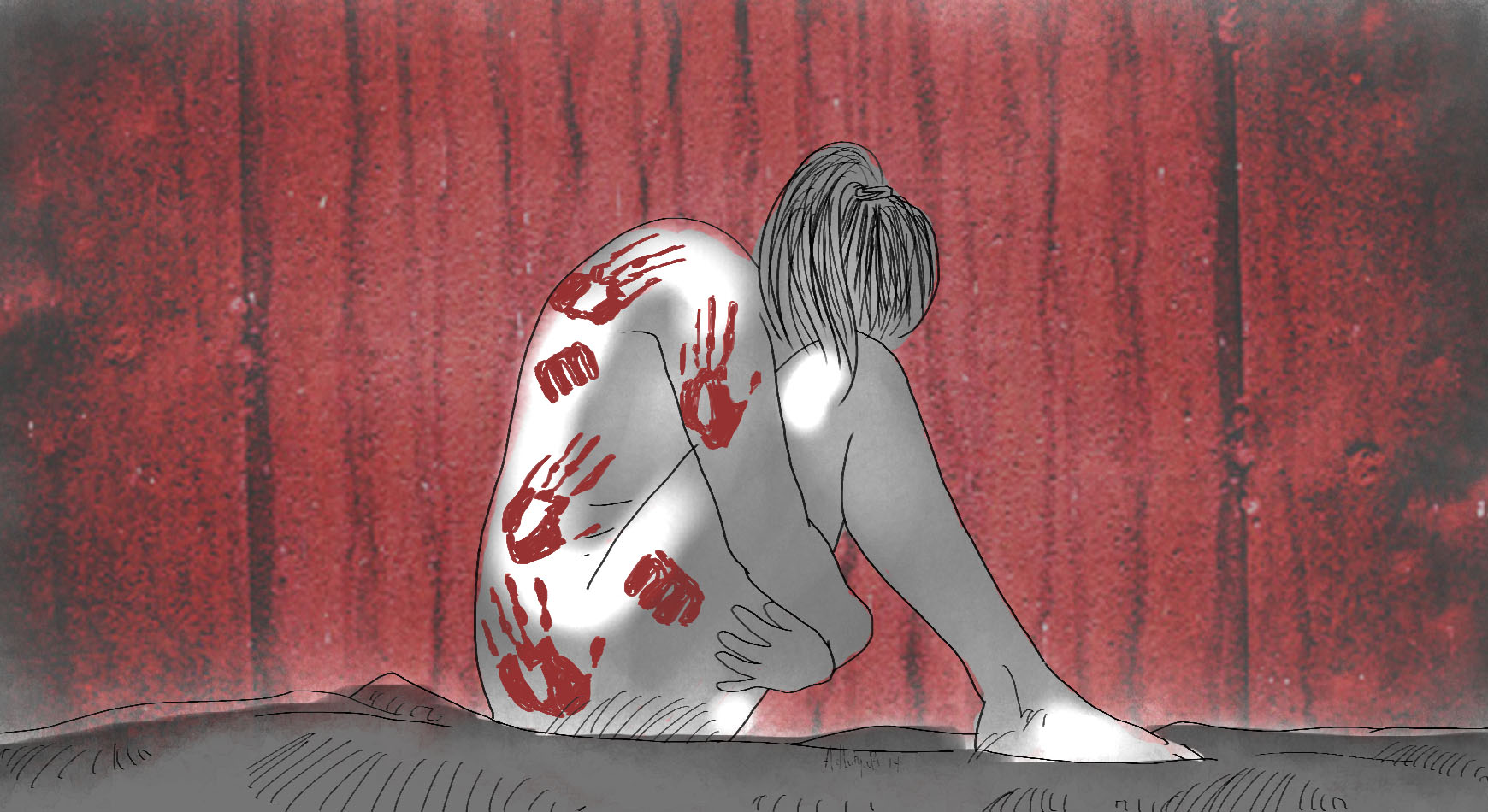After being introduced by her friend, Alma knew she was meant to be with her husband when she met him again by accident on a bus. Call it a coincidence, destiny or fate, but the romantic conviction may have been the reason she’s stayed in what later turned into an abusive marriage.
“I’ve been strangled, kicked, thrown at, slapped and punched,” the 30-something Alma, who agreed to speak about the physical and verbal abuse under the condition of strict anonymity, said of her relationship with her husband.
“The abuses all begin with petty arguments, it could be a quarrel over changing bed sheets or being late for biking on car-free days,” said Alma in a series of telephone and email conversations with Magdalene.
Alma talked in great length about what she calls her ‘destined meeting’ with her husband and how she was besotted by his easy charm. They dated for two years before finally tying the knots three years ago.
And she spared no details about the subsequent physical abuses, all of which were confirmed by one of her relatives who once accompanied her to report the case to the police.
Stigma Against Victims
Alma’s story is only one of many. Report of violence against women in Indonesia almost doubled in 2012 compared to the previous year. Around 66 percent of the reported domestic violence occurred amongst women aged 25 to 40, according to the latest data by the Indonesia’s National Commission of Anti-Violence Against Women (Komnas Perempuan).
“The figure is just the tip of an iceberg. Many women are not open to share their experiences, much less report their cases for help,” according to the Commission’s recent report.
“This is mainly caused by a growing stigma in society that the victim is the one to blame. They are seen as causing the problem, women are seducers or immoral who get what they deserve,” the report continues.
Politicians and high-ranking officials often bolster prejudice against women when they make insensitive remarks about domestic violence and rapes. Last year a Supreme Court justice candidate was forced to make a tearful apology after making a suggestion in public that women may enjoy being raped.
In cases of sexual violence, the patriarchal society tends to put the blame on women, who they say have dressed indecently and provoked men to commit rape. Others cast doubts on rape complaints, saying the act may have been intentional or consensual.
For domestic abuses, shame and personal pride often inhibit women from opening up and seeking help about problems.
Alma believes that exposing her husband’s abuses to the authorities will amount to a marriage failure on her part, bringing shame to her and her family.
She’s determined to resolve the marital issue by sweeping the cruelty under the carpet. Her Facebook account is filled with images of the couple in delightful gatherings and picturesque trips. Alma said they were trying to have a baby.
When she did try to turn her husband after one gruesome Sunday morning, the odds did not seem in favor of her.

That morning Alma and her husband had planned to cycle on the designated car-free roads, but they ended up arriving an hour later than planned, and the streets were already packed with people.
At the parking lot, her husband became upset, blaming her and demanding an apology. When she refused to apologize, he began to slap and strangle her against the car window. Her face, arms, and shoulders were bruised and scratched. She felt blood pooling in her ear.
The next day, Alma gathered her courage and waited until her husband left for work before going to the nearest police station.
Instead of being welcomed with open arms, she was told to lodge her report to a police station near to the crime scene. She went home and asked her relatives to take her there, some distance away from her house. Reporting the incident took nearly a day and all the while she tried to keep it off her husband’s radar.
The police summoned and questioned the husband, but in the end Alma decided to withdraw her complaint, reasoning that she only initially wanted to give her husband a shock therapy. They remain together.
“I have no intention to have him jailed,” said Alma.
Having been brought up in a traditional family, the university graduate hopes she could change her husband’s violent behavior. She believes that his upbringing and his relationship with his own family has made him the way he is.
“I try to comprehend why he behaves that way. I don’t think he is the type who easily hits people, but in his family, everyone feared and obeyed him,” said Alma.
“When he doesn’t like something, he raises his voice and his family will get quiet. I think he’s trying to shape me to behave like them.”
Asked if she was terrified that it could happen again in the future, she said, “I’m scared, but I think the violence happens because he doesn’t know how to handle me.”








Comments